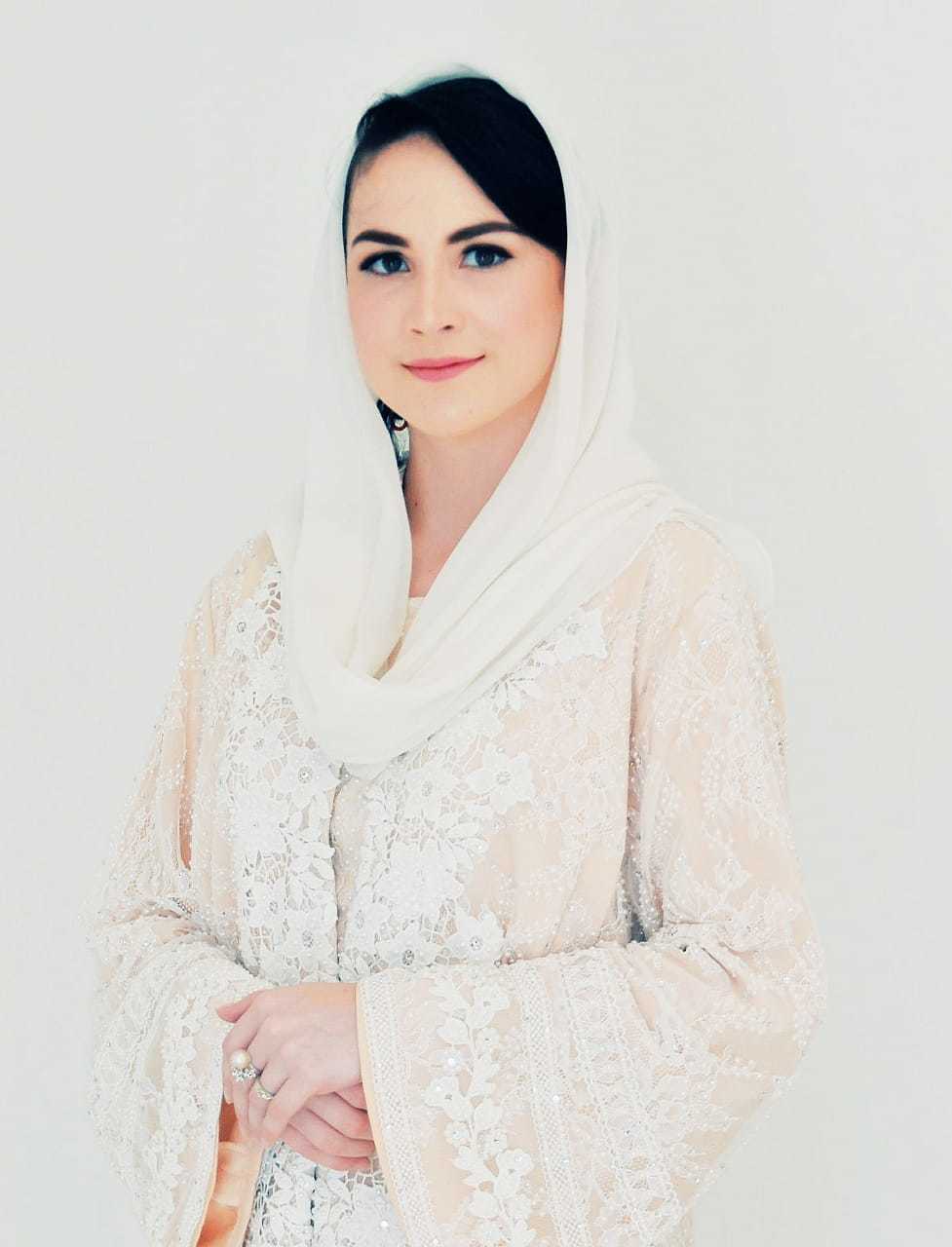Chairman of the Regional National Craft Council (Dekranasda) of East Java Province
Arumi leads East Java’s capacity building of women entrepreneurs and women-owned businesses. A diligent self-learner, Arumi has carved out a space in government on boosting partnerships with the private sector to create greater impact.
The actress-turned-government official makes her own calls. Arumi started her modelling career in 2006 when she was only 12 years old, before steadily rising to fame appearing in television dramas and commercials. As an actress, Arumi always had full autonomy on projects to take on. She retained that as she left the profession and got married.
When her husband ran for the position of East Java’s Deputy Governor, Arumi gave her full support and helped with the campaign. She wanted to get out of her comfort zone and venture into something new. At the time, Arumi’s only experience was working in the entertainment industry. She had to learn everything from scratch.
“I had no perspective from any other kind of work, and suddenly I had to be in contact with farmers, teachers, and many others,” Arumi remembers. And as she took on that challenge, she grew. Through making mistakes and sometimes bad decisions, Arumi evolved into a much better version of herself.
“I used to be selfish and always thought about ‘what can I get for myself’ but now I have a different perspective. Not only do I survive, I thrive,” Arumi says.
Now, Arumi attributes her success to the ability to direct the course of her own life, with no father or husband forcing her. She wants to see other women have the same liberty.
“I’ve never felt like there’s a judgement towards me or any expectation that is built for me. First, because I negotiated for it, and second, because that’s how I was raised by my parents,” Arumi said.
As current chairman of the Regional National Craft Council (Dekranasda), Arumi works tirelessly to find, guide and train thousands of small to medium women entrepreneurs in East Java. The program aims to be with them every step along the way – from teaching how to sew, buying the machines, to creating and marketing the brands.
Through public-private partnership the East Java Government has accelerated the integration of businesses into Indonesia’s digital economy. Private sector players such as Indonesian Business Women’s Association (IWAPI), Go-Jek, Bukalapak, and Tokopedia are invited to contribute.
“The potential contribution of East Javan women to the economy have not been fully explored – not because they are not capable, but because of gender inequalities often perpetuated in the name of ‘culture’, or sometimes ‘religion’. These doctrines make women believe they cannot do anything, and this is where we try to intervene,” Arumi says.
While salary gaps are closing in East Java, there is still a strong culture that perceives women as intimidating when they become successful. There is a lot of fear as a result. As a leader, Arumi tries to be aware of it. She encourages learning together with the people she leads. She advocates for continuous adaptation and flexibility.
For women to prosper, they must believe in themselves first. They have to be confident, for everyone else – including the banks and the investors – to believe in them too. Arumi reaffirms that her government’s commitment to gender empowerment will always be strong.
“It is both a privilege and a challenge,” Arumi says. She feels a kind of obligation to give women in her region better opportunities. Not just in terms of career and financials, but also mindset and perspectives.
In response to disasters, Arumi distributes aid to the most impacted families, prioritizing women workers laid off by factories. Arumi and her team are now working to identify how to prepare them to face future economic challenges. Plans include free and open-to-all webinars to teach the public the basics of doing business.
Arumi sees good opportunities for women post-pandemic. With innovations within the online space and remote working, women with kids can now have a higher chance to be hired without having to be physically present in the office.
Arumi has become a major figure in East Java on her own terms and her work shows how strong women leaders are urgently needed within the government ranks. Arumi’s position is strategic for GLI players who want to look for opportunities outside of the capital and for policy makers to learn from.





